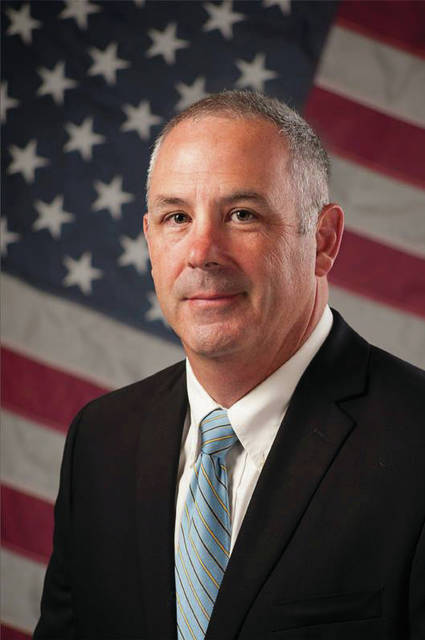
MIAMI COUNTY — On Friday, Feb. 7, local public school leaders from Miami, Darke and Preble counties voiced their opposition regarding the state’s voucher system during a round-table discussion with State Sen. Steve Huffman (R-5th), Rep. Todd Smith (R-43rd) and Charlotte McGuire from the State Board of Education.
The round-table discussion was held at the Miami County Education Service Center, Troy.
Last week, a bill was passed by House representatives that would eliminate performance-based vouchers. According to the Columbus Dispatch, the bill, which passed 88-7, would immediately eliminate the EdChoice program, which awards $4,600 in tuition annually for K-8 vouchers and $6,000 for high school vouchers based on how a school ranks on Ohio’s school report cards. The bill is now back at the Senate level.
The bill, if passed by the Senate as is and signed by Gov. Mike DeWine with line-item veto power, would replace the EdChoice system with Buckeye Opportunity Scholarships, an income-based program funded entirely by the state. The program would place the poorest kids at the front of the line in terms of eligibility. Students who currently receive performance-based vouchers would continue to receive them, and certain school-age siblings could apply. If those factors do not apply to the student, the EdChoice Scholarship program would end.
Buckeye Opportunity Scholarships would be fully funded up to 250 percent of the federal poverty level (approximately $65,000 annually for a family of four) and partially funded for families making up to 300 percent if funding was available.
As of Jan. 6, all Miami County public schools are on the list of eligible schools for the EdChoice program with the exception of Bethel Local Schools and Miami East Local Schools in Miami County. In Darke County, as of Jan. 6, the following schools meet the EdChoice criteria: Ansonia K-6; Greenville High School 9-12; and Mississinawa Valley K-6. Information on which districts across the state are on th list may be found at http://education.ohio.gov
The Ohio Department of Education currently determines if school districts and their students are eligible for EdChoice vouchers using state report card data from 2014, 2018 and 2019 report cards; graduation rate of D or F; lowest 10 percent of schools on its performance index ranking; a D or F for K-3 at-risk readers on two of the three report cards; and if a school district has been commissioned under “academic distress.”
In January, the Senate passed a bipartisan bill that would have kept the EdChoice program in place, but it cut the list of eligible schools from 1,227 down to 425.
Huffman said the voucher system is popular in the city of Dayton, which is part of his district. He also noted 1,200 students who applied for the EdChoice program were denied due to the lack of funding.
Huffman said he believes there will be some sort of compromise between the Senate and House.
Several superintendents spoke out against the voucher system due to the lack of a “level playing field” in regard to student testing and accountability; local district dollars following voucher students to private schools; their community’s tax dollars paying for faith-based education and potential recourse; private school’s selection process to determine which students to admit or deny; and, why state testing standards are mandated for public schools but are currently not required of private schools.
Huffman said he didn’t disagree with administrators regarding the private school and testing accountability issue.
“Private schools are private schools. We have very little we can do at the state-level to tell them how to run their business,” Smith said. Smith said currently, 29,600 students are on performance-based vouchers and 12,000 are on income-based vouchers. Smith said those 50,000 students’ parents also pay into the state education system through taxes and should have a choice and its funding follow their student — whether they change schools for faith-based education or for other reasons such as bullying.
“At the end of the day, does that private or that home-school parent pay property taxes? Yes? OK. I don’t (know what) all the squawk is about. I understand that at the end of the day, every person — whether they go to private, public or parochial school — they are paying that levy, so I know there’s a lot of angst about that…but, I will say as a caveat, where do we get our money? Everybody is paying in to the public system,” Smith said.
Some school leaders likened the measure of paying for police and fire services, but not ever using those organizations or being able to pick and choose which department to use if needed.
Several school leaders said their community has been vocally opposed to programs funding faith-based education with public funds and expressed their concerns and its ties to local tax levy issues.
“From this point moving forward, know that we don’t support it,” said Miami County ESC Superintendent David Larson to Smith and Huffman. Larson asked if legislation was leaning toward both income-based and performance-based eligibility or one system over the other.
“In my personal opinion, we are going to land some place in between there — 1,250 (EdChoice eligible schools) is way too many. I agree the report card is not really indicative of things, but we have to have some way of putting it in there. It also comes down to the state — is the state going to pay for it or is the district?” Huffman said.
Larson said the two eligibility options are very different from one another — performance-based because the home district isn’t doing well according to state testing and the other dependent on family income.
Rep. Jena Powell (R-Arcanum) was not present at the forum, but she had a representative at the meeting.





